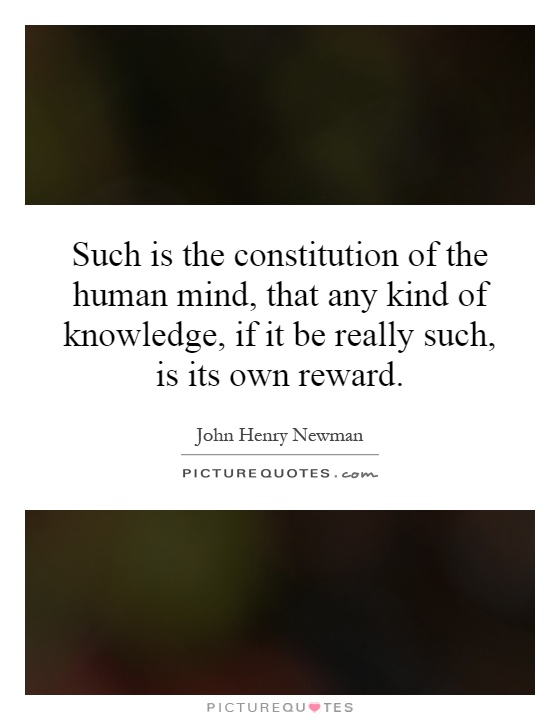Such is the constitution of the human mind, that any kind of knowledge, if it be really such, is its own reward

Such is the constitution of the human mind, that any kind of knowledge, if it be really such, is its own reward
John Henry Newman, a prominent figure in the 19th century religious and philosophical landscape, believed strongly in the intrinsic value of knowledge. His famous quote, "Such is the constitution of the human mind, that any kind of knowledge, if it be really such, is its own reward," encapsulates his belief that the pursuit of knowledge is a noble and worthwhile endeavor in and of itself.Newman was a firm advocate for the importance of education and intellectual growth. He believed that the human mind was naturally inclined towards seeking out knowledge and understanding, and that this pursuit was not only beneficial for personal growth, but also essential for the betterment of society as a whole. In his view, knowledge was not just a means to an end, but a valuable end in itself.
For Newman, true knowledge was not just about acquiring facts or information, but about engaging with ideas, concepts, and truths that could enrich and enlighten the mind. He believed that the pursuit of knowledge was a deeply rewarding and fulfilling experience, one that could bring joy, satisfaction, and a sense of fulfillment to those who engaged in it.
Newman's belief in the intrinsic value of knowledge was rooted in his understanding of the human mind as a rational and intellectual being. He saw the pursuit of knowledge as a fundamental aspect of human nature, one that distinguished us from other creatures and defined our unique capacity for growth and development.












 Friendship Quotes
Friendship Quotes Love Quotes
Love Quotes Life Quotes
Life Quotes Funny Quotes
Funny Quotes Motivational Quotes
Motivational Quotes Inspirational Quotes
Inspirational Quotes